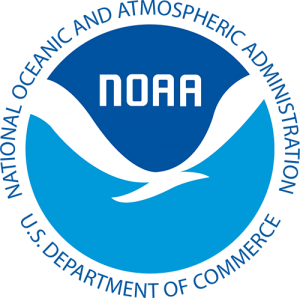NOAA-NERRS Science Collaborative
The program.
 The National Estuarine Research Reserve System’s Science Collaborative supports research that addresses coastal management problems important to the reserves. The Science Collaborative
The National Estuarine Research Reserve System’s Science Collaborative supports research that addresses coastal management problems important to the reserves. The Science Collaborative
is managed by the University of Michigan’s Water Center through a cooperative agreement with the National Oceanic and Atmospheric Administration. Funding for the research reserves and this program comes from NOAA. Learn more at coast.noaa.gov/nerrs or graham.umich.edu/water/nerrs
This project.
Coastal managers are faced with the challenge of managing marsh hydrology in a way that meets human health needs (e.g., mosquito control), optimizes ecosystem services (e.g., biomass production, carbon burial), and supports sustainability (e.g., elevation). This includes accounting for the effects of ditches that were dug decades ago in 90% of New England salt marshes. Ditches increase marsh drainage and reduce the spatial extent of shallow pools. However, efficient drainage may reduce the long-term sustainability of marshes by altering belowground biogeochemical and physical processes in a way that results in subsidence and lowered marsh elevation. Managers, restoration practitioners, and scientists at the Waquoit Bay National Estuarine Research Reserve, US Fish and Wildlife Service, National Park Service, and the Cape Cod Mosquito Control Project, among others, have expressed a need to understand the tradeoffs of hydrologic management strategies (i.e., ditch remediation, density, maintenance) and identify actions that will likely achieve user-specified outcomes (e.g., drainage, maintaining elevation, carbon burial). Through an innovative collaboration between scientists and end users our team will develop decision support tools for managing marsh hydrology that promote sustainability and delivery of valuable ecosystem services under future sea level scenarios.
